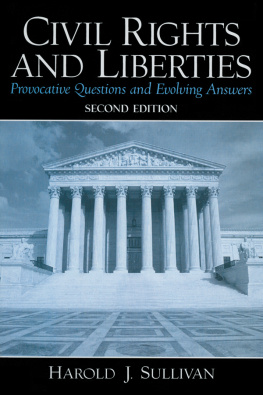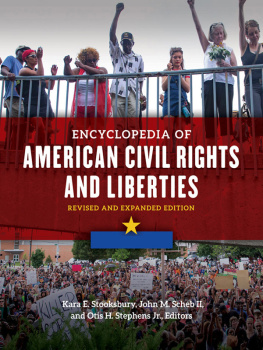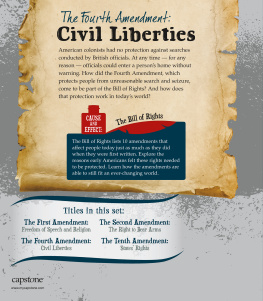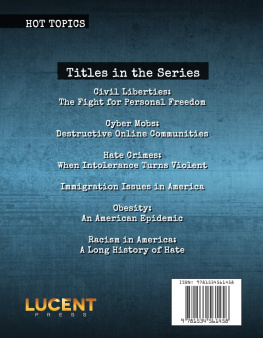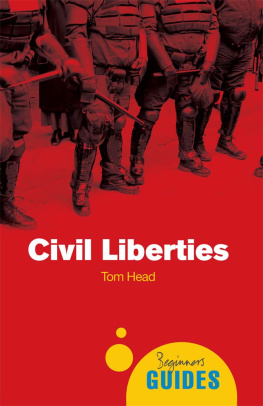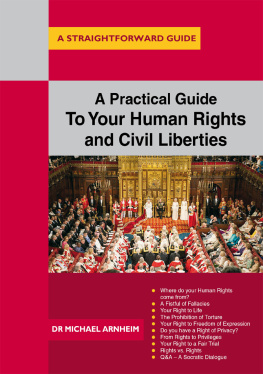First published 2005, 2001 by P earson Education, Inc.
Published 2016 b y Routledge
2 Park Square, Milton Park, Abingdon, Oxon OX14 4RN
711 Third Avenue, New York, NY 10017, USA
Routledge is an imprint of the Taylor & Francis Group, an informa business
Copyright 2005, 2001 Taylor & Francis. All rights reserved.
All rights reserved. No part of this book may be reprinted or reproduced or utilised in any form or by any electronic, mechanical, or other means, now known or hereafter invented, including photocopying and recording, or in any information storage or retri eval system, without permission in writing from the publishers.
Notice:
Product or corporate names may be trademarks or registered trademarks, and are used only for identification and explanation without intent to infringe.
Credits and acknowledgments borrowed from other sources and reproduced, with permission, in this textbook appear on appropriate page within text.
ISBN : 978013174351 (pbk)
Cover Design: Bruce Kenselaar
Library of Congress Cataloging-in-Publication Data
SULLIVAN, HAROLD J. (HAROLD JOSEPH)
Civil rights and liberties: provocative questions and evolving answers /
HAROLD J. SULLIVAN.
p. cm.
Includes bibliographical references and index.
ISBN 0-13-117435-5
1. Civil rightsUnited States. I. Title.
KF4749.S85 2005
342.73085dc22
Since the first edition of this book appeared in the Fall of 2000, there have been significant developments in constitutional law concerning civil rights and liberties. In this second edition I continue to hope to stimulate readers into thinking critically about both new and continuing issues in the civil rights/civil liberties field.
In order to stimulate such thinking, each section of this book is introduced with a question. The questions are followed by responses which present the variety of answers justices of the United States Supreme Court have given to such questions in actual cases which have come before the Court. The questions are phrased simply and directly, and each answer is an essay designed to make constitutional interpretation accessible to readers even if they have no background in constitutional law. I expect that when such readers see many of the questions, they will think to themselves: Ive always wondered about that. When they read the answers, they will be exposed to various constitutional tests and doctrines. I hope as well that when they read the questions and the variety of answers to them, they will be stimulated to explore in greater detail the U. S. Supreme Court decisions from which these answers were derived.
The subtitle of this book refers to provocative questions/evolving answers. The answers provided by the United States Supreme Court justices have in fact been constantly evolving as the justices have sought to apply the principles of the Constitution to changing circumstances and new questions, some of which could not have been anticipated by the authors of the Constitution. Indeed some of the answers concerning questions relating to cross burning and racial intimidation, diversity and affirmative action, sexual privacy, pornography over the Internet, and government support for religious institutions, to name a few, have evolved significantly since the publication of the first edition of this book. This second edition, then, preserves what is still relevant from the first edition while incorporating more recent developments in constitutional law.
Having discussed both traditional and new issues throughout, in the end I hope to provoke readers into thinking about some questions that may become increasingly important in the future. These are issues with which the U.S. Supreme Court has only begun to grapple. I hope my discussion of them will stimulate readers to help evolve some new solutions on their own.
Although the first edition of this book was published in the Fall of 2000, I still owe an enormous debt to those whose support helped make it possible and to others who have provided encouragement to me as I have prepared this revised edition. I will begin by acknowledging colleagues at the City University of New York and others who have provided ideas and encouragement. I have had the privilege of chairing an extraordinarily dynamic and committed Government Department at John Jay College / Cuny for almost 15 years. Two Government colleagues in particular, Barry Latzer and Roger McDonald, provided constructive criticism. Other John Jay colleagues whose friendship and encouragement continue to be invaluable include Jim Cohen, Anna Goldoff, Karen Kaplowitz, and Robert Sullivan. Outside of Cuny, Stephen K. White of the University of Virginia with whom I first discussed the idea for this project while we were still graduate students; Glenn Tinder whose book Political Thinking (Boston: Little Brown, 1970) gave me the idea for the question-and-an-swer format of this book, and my mentor and friend from college, George Goodwin, deserve acknowledgment and thanks. It is to the inspiration of George Goodwin, in particular, that I owe my career and the opportunity to teach so many wonderful John Jay students. In addition I owe thanks to Judith Baer of Texas A&M University; as well as to Beth Mejia, Jayme Heffler, Glenn Johnston, John Ragozzine, and Edie Riker of the editorial staff at Prentice Hall; to the reviewers for the first edition: Richard Hardy, University of Missouri, Columbia; Gregory Scott, University of Central Oklahoma; as well as to the reviewers who helped shape this second edition: Robert G. Seddig, Allegheny College; Alex Landi, Spring Hill College; and James Renneker, Francis Marion University.
While acknowledging that I owe much to professional friends and colleagues, I am most in debt to family members and very close friends without whose help and support nothing would be possible. My wife Joan Kross, to whom I again dedicate this book, continues to supply seemingly limitless love and inspiration. My late mother, Margaret (Shine) Sullivan and my late sister Evelyn always supported me in everything I did as my brother Kenneth continues to do today. Although my father, Michael, died when I was 10 years old, I remain influenced by his impatience with injustice. My stepsons, John and Edward Noble, have been generous in welcoming me into their family. John is an admirable model of passionate commitment to worthwhile values, and his younger brother, Edward, a promising writer himself, is finding his own distinct path. My wifes mother, Irene Kross, continues to show a keen interest in my work. I am happy again to be in position to acknowledge as well my unofficial family, Deb, Stephen, A. J. and Eric Devaux. It was through Deb and Stephen that I met my wife, Joan. For many years before I had a family of my own, Stephen and his two awesome sons, AJ and Eric, always made me feel like part of their family. I have been close to AJ and Eric since they were born, and I shared in the joy of watching them grow into remarkable young men. Shortly after this edition actually appears in print AJ will be on his way to college where he is sure to impress all with his intellectual curiosity and quick wit. The always considerate Eric will continue earning deserved respect and winning friends in middle school and beyond. I look forward to them both being, like their dad, my friends for life. They are part of a larger coterie of very close friends, the Group, many of whom I have known for over 35 years.


